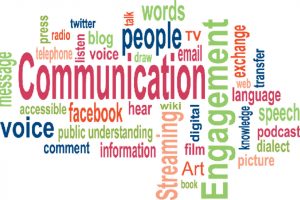
Research reports consistently show that the two priorities for people with disabilities and long-term health conditions in work are:
1. getting the adjustments they need; and
2. having a disability-confident line manager.
This is why both of these critical enablers feature prominently in my five key disability priorities.
So, if we know that these two factors are the biggest barriers to recruiting, retaining and developing colleagues with disabilities and long-term health conditions, what is the Civil Service doing to address them?
New workplace adjustments guidance
Firstly, let me address workplace adjustments. Access to good advice and guidance is paramount in encouraging better interactions between disabled employees and line managers, and in removing inconsistencies in application of policies that lead to unequal outcomes and experiences.
In previous blogs I have highlighted the important role of the central Civil Service Workplace Adjustment Service. Working alongside departments, it provides specialist advice and access to an impartial, confidential ‘review’ service for anyone experiencing difficulties in securing the adjustments they need. The team also provides a full workplace adjustment case management function for those departments that request it. The service has received excellent feedback from users and consistently meets its 48-hour response target across a broad spectrum of requests covering a wide range of diverse needs.
Building on this work, we have developed a new model Workplace Adjustments Policy and Line Manager’s Best Practice Guide that offers clarity to line managers and employees on what to do and how to do it. This provides a wealth of information on the support that is available, including links to the:
- cross-government Workplace Adjustment Passport to enable portability of adjustments when disabled colleagues have a new line manager or move between departments; and
- Review Route, a helpline open to all Civil Service staff experiencing difficulties in obtaining the adjustments they need.
This is important as, for the first time, disabled employees and line managers will have a central focal point for best practice advice and information on implementing high-quality and timely adjustments. This will enable us to drive up standards, achieve greater consistency in workplace adjustment provision and support the Civil Service in achieving its ambition to be the UK’s most inclusive employer by 2020.
Line manager role
This links to the second enabler, equipping line managers with disability confidence.
Line managers have a pivotal role to play in putting in place high-quality and timely workplace adjustments, so that everybody has the opportunity to develop, progress and realise their potential.
Line management interventions are a key factor in determining whether employees with disabilities have a positive experience at work, are fully engaged and remain committed to the organisation. A disability-confident manager knows their team, builds strong rapport and trust, listens generously and engages all team members in delivering business objectives.
The new model workplace adjustment guidance will support line managers to build their disability confidence. However, I recognise that we need to do much more.
New disability awareness learning offer

Further actions planned include launching a new disability awareness learning offer. This includes a series of video clips, featuring disabled civil servants in various government departments/agencies sharing their experiences and tips for building disability confidence. The videos cover a range of disability themes, including acquired disability, learning disability, visible disability, non-visible disability and neurodiversity. Each video clip is complimented by a short scenario to embed the learning.
The Disability Confident Video Clips on the Civil Service Learning portal, are part of the wider, refreshed, disability awareness learning offer, including bite-sized online tutorials, case studies, top tips, a knowledge checker and optional links to additional resources and activities. If anyone would like to view a 'taster' of the videos or does not have access to Civil Service Learning, please click here.
Communications campaign
 During January and February we will be running a centrally led Communications Campaign; aimed at encouraging line managers to build their disability confidence and to raise awareness of the support and tools available, such as the new model workplace adjustment guidance and new learning offer.
During January and February we will be running a centrally led Communications Campaign; aimed at encouraging line managers to build their disability confidence and to raise awareness of the support and tools available, such as the new model workplace adjustment guidance and new learning offer.
You can expect to see lots of communication activities aimed at line managers over the coming months; including a Civil Service World article, an online quiz for line managers to test their disability-confident knowledge, and an ENEI (Employers Network for Equality & Inclusion) roundtable event on the theme of building line manager disability confidence.
 I welcome the views of disabled colleagues and line managers on what further actions we can take to build line manager disability confidence.
I welcome the views of disabled colleagues and line managers on what further actions we can take to build line manager disability confidence.
If you have ideas or suggestions, please post your comments below or contact me at disability.champion@dft.gsi.gov.uk.
Follow Philip on Twitter: @PhilipRutnam.

9 comments
Comment by Gavin Thomas posted on
Thank you Philip for promoting an important topic. I can certainly say that within the FCO that Alex Freegard, Chair of the FCO Staff Association ENABLE has done some fantastic work in helping to not only increase awareness and understanding, but has also empowered colleagues to talk about the challenges that they have faced and how they have overcome them.
As a member of the FCO Staff Association the Wellbeing Network, we have tried to increase awareness about Mental Health and as we approach Time to Talk day, I would hope that ALL Line Managers would take a few moments to reflect on the way that they behave towards their staff and perhaps take the opportunity to have a short conversation with a colleague or friend to check in on their wellbeing!
Comment by Philip Rutnam posted on
Gavin - Thank you for taking the time to acknowledge the excellent work of Alex Freegard and ENABLE colleagues within the FCO to increase awareness of barriers faced by disabled colleagues and to encourage others to talk about their experiences. I am delighted also to hear about your important work with FCO Staff Association the Wellbeing Network to use the build up to Time to Talk day as an opportunity to increase awareness of mental health. We should all take time to have regular short conversations with colleagues or friends to check on their wellbeing throughout the year, and I hope that your efforts were successful in communicating this message.
Comment by Kevin posted on
Another timely and thoughtful piece on the need to recognise and engage with the diverse range of talent available to the Service.
On the issue of reasonable adjustments, Philip (as do other senior leaders) state that once in place, the Passport gives disabled staff "portability of adjustments when disabled colleagues have a new line manager or move between departments". That it is an empowering tool for our disabled colleagues.
With the greatest of respect, this is wishful thinking.
My own experience, having moved to a similar role within the same Department, is that my new line management immediately deemed elements of my WAP as incapable of being accommodated.
The new line management also requested the previous OH report(s) which supported the WAP.
This means that far for respecting my need for confidentiality, these will again be shared and discussed by unknown individuals in my new management chain - which will doubtless give rise to judgement and bias as to my abilities and potential.
As I have no reason to believe that my experience is unique, I can only assume that this will be the reality for most people changing roles and relying on the continuity the WAP is supposed to provide.
I welcome the move to build line manager confidence empowerment to tackle disability barriers. However, the notion that disabled staff are in equally empowered by virtue of the Workplace Passport cannot, I fear, be supported by experience.
Comment by Philip Rutnam posted on
Dear Kevin,
Thank you for taking the time to post your comments. I am always keen to hear from staff about their own experiences.
The Workplace Adjustment Passport serves as a valuable record of the discussions that take place between employees and their line manager about the type of adjustments that have been agreed at that time and in those circumstances. It also provides a clear foundation for further discussions should a member of staff experience a change in either role or line management.
Workplace Adjustments should only be revisited if a disability or long-term health condition has changed, or if there are good, clear business reasons for doing so. Where there is a change in roles, it might not always be possible to continue to support a particular adjustment. If this happens the line manager should be clear why and work with the member of staff to see what support they can give.
Personal data should not be shared without your prior consent and I would encourage you to discuss this request with your line manager, HR Adviser or departmental workplace adjustment adviser.
If you are experiencing a delay or barrier you can also use the review route to contact the central workplace adjustment team on cswat.reviewroute@dwp.gsi.gov.uk or 0114 294 8902 for advice.
Comment by Kevin Oliver posted on
Philip, a great piece.
You'll know from the work I did at DVLA last year that I'm a big advocate of Fairness in the workplace. Anything that is the catalyst to bringing fairness to the workplace has to be both good and positive. And once we have achieved this, we can look at building inclusivity in from the start, so that workplace adjustments are not neccessary. If there's anything I can do to help the process, just ask.
Comment by Philip Rutnam posted on
Kevin - Thank you for your comment. I share your view on building fairness and inclusion into all aspects of our working practices until these values become part of our culture and way of working. Thanks for your offer to become involved in driving this change. I will invite you to one of our next cross-government disability events to continue this discussion.
Comment by Chris posted on
About six months ago I was part of a team that invited the British Stammering Association to one of our team meetings. An important point was that the line manager had done this with the permission of the person who was joining the team and who had a stammer. I found the session really empowering, giving me some practical tips to be more inclusive in the way we communicate or chair a meeting, for example. Not only did the session help bring the team together, the person who thought up the idea was helping us with knowledge about the subject area and by doing so making us a more productive team in the way we communicate with each other.
The Civil Service is part of an Employers Stammering Network and has a facebook group if you would like to find out more. http://www.stammering.org/speaking-out/article/new-civil-service-group-facebook
Comment by Philip Rutnam posted on
Chris - Thank you for your comment. You make an excellent point that the Team Stammering Awareness event which you attended was organised after securing the agreement of the person due to join the team. I am sometimes told of incidences of managers with good intentions organising activities or adjustments to support a disabled colleague without speaking to them first. The golden rule before organising any adjustment or awareness event is to speak to the person with the disability. They are best placed to diagnose their needs.
I am delighted that the Civil Service is a member of the Employers Stammering Association and has an active Civil Service Stammering Network.
Comment by Matt Meynell, CS Workplace Adjustment Team posted on
Thanks Philip for again highlighting workplace adjustments in your blog.
My team is keen to hear from civil servants about their experience of the workplace adjustment process. This will help us identify where we can further improve.
We have developed a survey and I would encourage everyone who has recently had a workplace adjustment to complete this. The survey is open until 12 February and can be found on departmental intranets. If you cannot locate it, please contact cshr.casework@csep.gov.uk and we will be happy to help.
All responses will be anonymous and we are not collecting any personal information that could identify individuals.